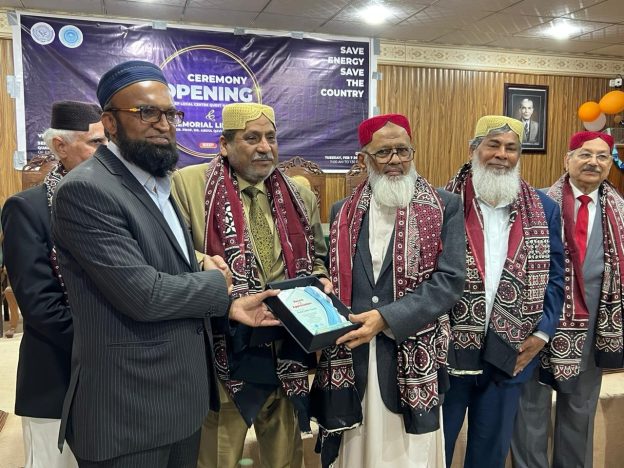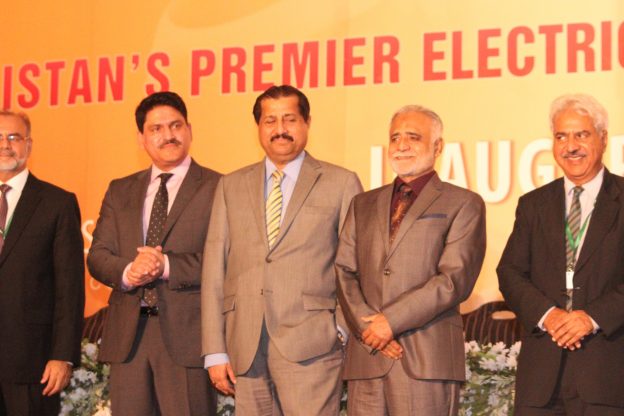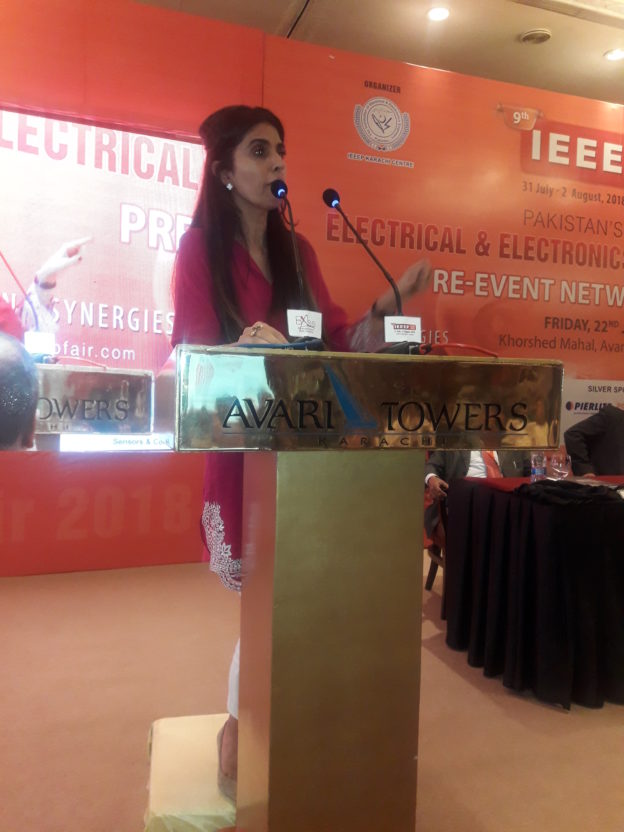The Institution of Electrical and Electronics Engineers Pakistan (IEEEP) has opened a new chapter in Nawabshah, a central district in Sindh province. This will be the second chapter after Karachi. The institution’s latest chapter is located in Quaid-E-Awam University of Science & Technology (QUEST) Nawabshah. Engr. Prof. Dr. Abdul Sattar Saand has been selected as Chief Organizer and interim chairman of this Local Centre.
A statement sent by Dr Saand said the new IEEEP Local Centre at Nawabshah was launched at Electrical Engineering Department Quaid-e-Awam University of Science & Technology campus on 7th Feb 2023.
Prof. Dr. Sohail Aftab Qureshi, President IEEEP inaugurated the new centre. Engr. Prof. Dr. Saleem Raza Samo Vice Chancellor Quaid-E-Awam University of Science & Technology Nawabshah presided over the ceremony held in Engr. Prof. Dr. Abdul Qavi Qazi Memorial Senate Hall.
A large number of faculty members, engineers and students of the university participated in the event. Delegates from IEEEP Local Centre Karachi, Lahore and Jamshoro were also present.
A memorial library in memory of Late Engr. Prof. Dr. Abdul Qavi Qazi
Ex- Vice Chancellor and one of the pioneers of Quaid-E-Awam University of Science and Technology has also been setup in the Electrical Engineering Department of the university and was inaugurated by Prof. Dr. Sohail Aftab Qureshi and Vice Chancellor Prof. Dr. Saleem Raza Samo The ceremony was also witnessed by Prof. Dr. Abdul Qavi Qazi’s daughter Engr. Fauzia Kazi and his wife, who travelled all the way from Karachi participated in the memorable event.
Prof. Dr. Abdul Sattar Saand, the Chief Organizer and interim chairman of IEEEP Local Centre Nawabshah presented the welcome address.
Arshad Chughtai, Coordinator of the event, gave a detailed background of the formation of the centre and specially urged the youth to fully participate in the activities of IEEEP with full vigor and spirit. Engr. Arshad Chughtai also informed the moot that two eminent engineers from Nawabshah have recently passed away therefore the house offered condolence for late Engr. Jamal Uddin Mughal SE (R) WAPDA and a graduate of Sindh University Engineering College Jamshoro 1967 Batch and Engr. Rao Abdul Jabbar, Chief Engineer (R) WAPDA and a graduate of Sindh University Engineering College Jamshoro 1972 Batch. It was decided that a message of condolence to the bereaved families will be communicated by IEEEP Local Centre Nawabshah.
GR Bhatti Vice President South addressed the ceremony and termed the event to be a new milestone in the history of IEEEP, that the centre has been created in the middle of the province and will go a long way to promote the cause of IEEEP.
Former IEEEP KLC Chairman Engr. Asif Siddiqui also spoke on the occasion and extended his heartiest congratulations to IEEEP and the local organizers.
Khalid Pervez, Chairman IEEEP Local Centre Local Centre Karachi offered every possible assistance and support on behalf of the Karachi Centre and hoped that the new centre will soon succeeded.
Tahir Mehmood Chaudhary, CEO PIE, also addressed and congratulated IEEEP Management and the QUEST University organizers for holding such a remarkable event and prayed for continued success.
Prof. Dr. Saleem Raza Samo, the Vice Chancellor, in his presidential address expressed his gratitude to Engr. Prof. Dr. Sohail Aftab Qureshi, President IEEEP and other distinguished delegates to grace the occasion and assured IEEEP his University’s absolute support to make the centre fully functional and operative. He declared the university would pay the Membership Fee of all eligible undergraduate students of QUEST. He lauded the efforts of Engr. Prof. Dr. Abdul Sattar Saand and other members of the organizing team worked so devotedly in initiating the steps to the new centre.
Chief Guest Engr. Prof. Dr. Suhail Aftab Qureshi, President of IEEEP, formerly declared the new centre open and announced the list of office bearers and members of the new council. He also announced that IEEEP will also establish a computer centre in the office of the newly formed centre and invited the members of IEEEP Local Centre Nawabshah to visit IEEEP Lahore HQ. The president of IEEEP also announced the first IEEEP student branch as the Quaid-e-Awam University Nawabshah. He congratulated the Vice Chancellor, Prof. Dr. Saleem Raza Samo, Engr. Prof. Dr. Abdul Sattar Saand and other faculty members to raise the new centre in such a quick time and termed it as a dire need of time and believed that in times to come the centre will boost the IEEEP activities in the region.
Prof. Dr. Suhail Aftab Qureshi, the chief guest, and Engr. Prof. Dr. Saleem Raza Samo, Vice Chancellor QUEST, the president of the ceremony, distributed shields and the annual excellence award certificate to the professional engineers and academicians and also decorated with traditional Ajrak and Cap-Capa for eminent participants and guests.
Prof. Dr. Abdul Sattar Saand was nominated as the Chairman of IEEEP Local Centre Nawabshah, Vice Chairman Engr. Prof. Dr. Erum Pathan, General Secretary Engr. Shahid Hussain Qureshi, Joint secretary Engr. Dr. Toufique Ahmed Soomro and Treasure Engr. Riaz Hussain Memon.
IEEEP launches Local Center at QUEST Nawabshah









